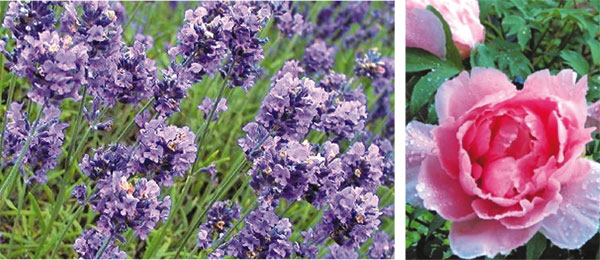How plants know when to flower
It's in the genes:research pinpoints:
Scientists believe they've pinpointed the last crucial piece of the
80-year-old puzzle of how plants "know" when to flower.Determining the
proper time to flower, important if a plant is to reproduce
successfully, involves a sequence of molecular events, a plant's
circadian clock and sunlight.
Understanding how flowering works in the simple plant used in this
study -- Arabidopsis -- should lead to a better understanding of how the
same genes work in more complex plants grown as crops such as rice,
wheat and barley, according to Takato Imaizumi, a University of
Washington assistant professor of biology and corresponding author of a
paper in the May 25 issue of the journal Science.
"If we can regulate the timing of flowering, we might be able to
increase crop yield by accelerating or delaying this. Knowing the
mechanism gives us the tools to manipulate this," Imaizumi said. Along
with food crops, the work might also lead to higher yields of plants
grown for biofuels.

At specific times of year, flowering plants produce a protein known
as FLOWERING LOCUS T in their leaves that induces flowering. Once this
protein is made, it travels from the leaves to the shoot apex, a part of
the plantwherecellsareundifferentiated, meaning they can either become
leaves or flowers. At the shoot apex, this protein starts the molecular
changes that send cells on the path to becoming flowers.
Changes in day length tell many organisms that the seasons are
changing. It has long been known that plants use an internal
time-keeping mechanism known as the circadian clock to measure changes
in day length. Circadian clocks synchronize biological processes during
24-hour periods in people, animals, insects, plants and other organisms.
Imaizumi and the paper's co-authors investigated what's called the
FKF1 protein, which they suspected was a key player in the mechanism by
which plants recognize seasonal change and know when to flower. FKF1
protein is a photoreceptor, meaning it is activated by sunlight.
"The FKF1 photoreceptor protein we've been working on is expressed in
the late afternoon every day, and is very tightly regulated by the
plant's circadian clock," Imaizumi said. "When this protein is expressed
during days that are short, this protein cannot be activated, as there
is no daylight in the late afternoon.
When this protein is expressed during a longer day, this
photoreceptor makes use of the light and activates the flowering
mechanisms involving FLOWERING LOCUS T. The circadian clock regulates
the timing of the specific photoreceptor for flowering. That is how
plants sense differences in day length."
This system keeps plants from flowering when it's a poor time to
reproduce, such as the dead of winter when days are short and nights are
long.The new findings come from work with the plant Arabidopsis, a small
plant in the mustard family that's often used in genetic research. They
validate predictions from a mathematical model of the mechanism that
causes Arabidopsis to flower that was developed by Andrew Millar, a
University of Edinburgh professor of biology and co-author of the paper.
"Our mathematical model helped us to understand the operating
principles of the plants' day-length sensor," Millar said. "Those
principles will hold true in other plants, like rice, where the crop's
day-length response is one of the factors that limits where farmers can
obtain good harvests. It's that same day-length response that needs
controlled lighting for laying chickens and fish farms, so it's just as
important to understand this response in animals.
"The proteins involved in animals are not yet so well understood as
they are in plants but we expect the same principles that we've learned
from these studies to apply.
- ScienceDaily |

